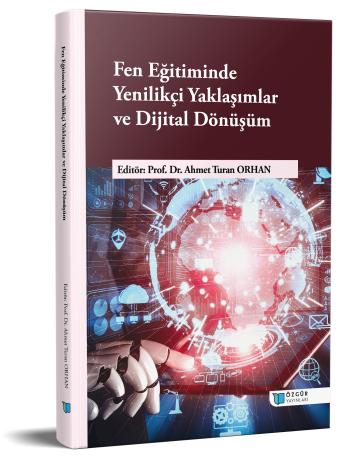
The Effects of Using Artificial Intelligence to Develop Creativity and Innovation Skills on Science Education
Chapter from the book:
Orhan,
A.
T.
(ed.)
2025.
Innovative Approaches and Digital Transformation in Science Education.
Synopsis
When viewed in terms of its past and present, science education remains too vast a subject to be considered in isolation, and too substantial to exist without coexisting with other disciplines. It will continue to lead the way in keeping pace with current developments. Science education does not accept isolation; it keeps up with academic developments and continues to pioneer new discoveries. Today, artificial intelligence and other emerging technologies are in a position of influence in many areas, or have the potential to be so. In the era of digital transformation, the rapid development of technology has made artificial intelligence applications indispensable in education, healthcare, and social services, necessitating educational reform and the adoption of artificial intelligence-supported education systems (Huang, 2024). One area expected to be influenced by artificial intelligence is science education. The ability to react to this situation in advance is crucial for the development and advancement of the field. At the same time, it is possible to mitigate any potential negative consequences by taking precautions in advance. To maintain relevance and ensure productivity in science education, creativity and innovation must be emphasized. Creativity and innovation also occupy a prominent position among 21st-century skills. This section examines the extent to which creativity and innovation, emphasized in science education, are connected to artificial intelligence. It also considers whether this connection contributes to science education and explores its potential advantages and disadvantages. Additionally, this section poses questions centered on science education, artificial intelligence, creativity and innovation. For example: ‘Why does artificial intelligence exist?’ What are creativity and innovation? Could science education be negatively affected?'

